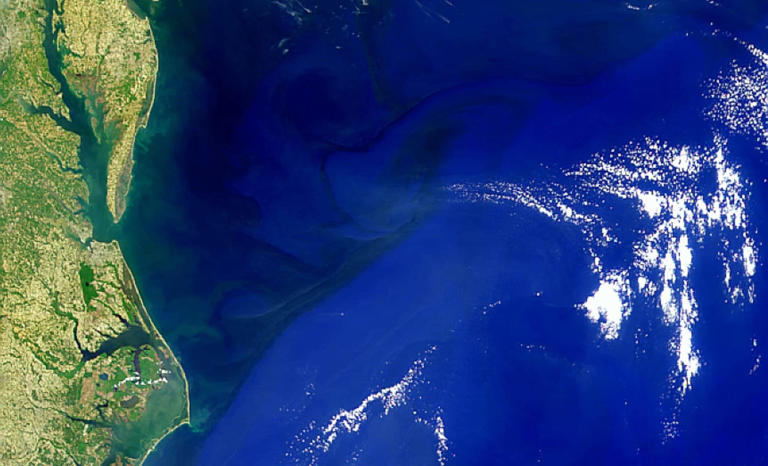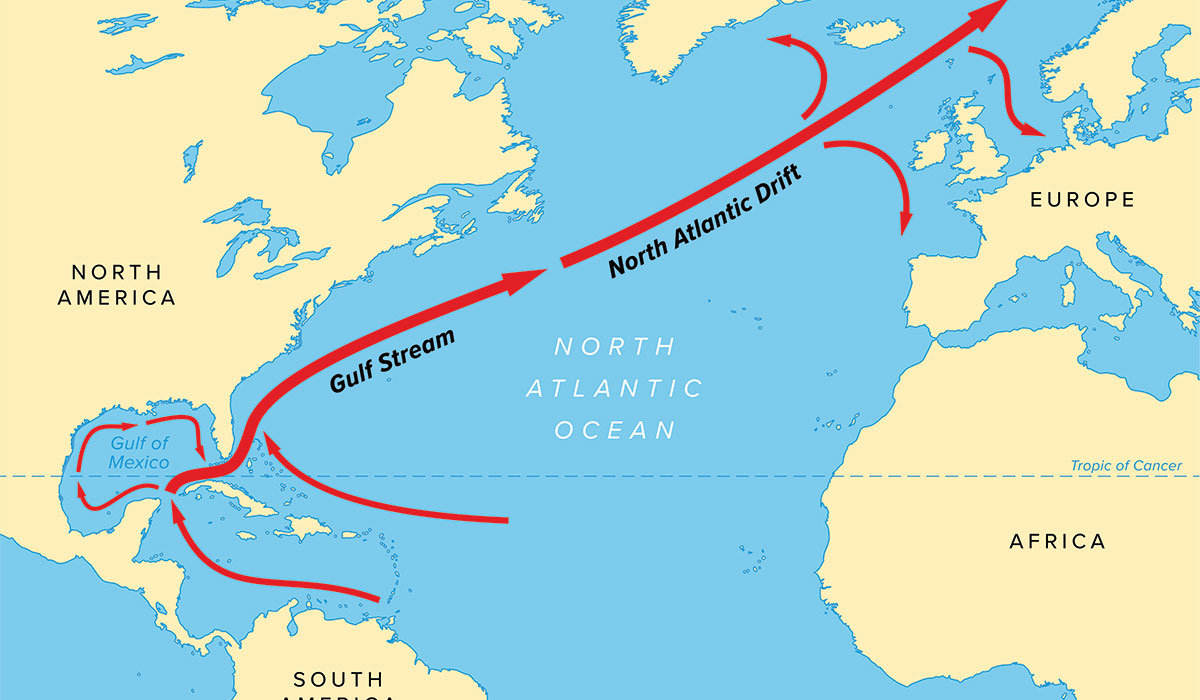Climate Scientists Warn Gulf Stream Could Collapse, Risking New Ice Age
Climate scientists have issued a stark warning regarding the potential collapse of a crucial ocean current known as the Atlantic Meridional Overturning Circulation (AMOC). This alarming prediction, detailed in a recent study published in the journal Communications Earth & Environment, suggests that the AMOC could be on the brink of collapse within the next few decades. The implications of such a collapse could be catastrophic, potentially leading to a new ice age and significantly raising sea levels.
Key Details
The Atlantic Meridional Overturning Circulation is often referred to as the "conveyor belt of the ocean." It plays a vital role in regulating marine temperatures by funneling warm water from the tropics to the surface of the Northern Hemisphere. This current includes the Gulf Stream, which flows from the Gulf of Mexico along the US East Coast and across the Atlantic Ocean to Europe. The AMOC is essential for maintaining the relatively mild climate experienced in Europe, the UK, and the US East Coast.
According to the study, the AMOC is at risk due to the melting of the Greenland Ice Sheet, which is occurring as global temperatures rise. This melting contributes to an influx of freshwater into the North Atlantic, which can disrupt the normal functioning of the AMOC and lead to stagnation. The researchers caution that if the AMOC were to slow down significantly, it could result in drastic temperature drops across Europe, with predictions suggesting a potential decrease of nearly 60 degrees Fahrenheit.

Image for Climate scientists warn Gulf Stream could collapse, risking new ice age
Background
The AMOC is a critical component of the Earth"s climate system, influencing weather patterns and temperatures across the Atlantic region. Its stability is essential for the ecological balance and climate regulation in many areas. The current study adds to a growing body of research indicating that climate change is having profound effects on ocean currents and, consequently, global weather systems. The implications of these changes are not limited to temperature fluctuations; they also encompass rising sea levels, which pose a threat to coastal communities worldwide.
What"s Next
The findings of this study underscore the urgent need for global action to address climate change and its impacts. As previously reported, the consequences of climate change are becoming increasingly evident, with extreme weather events and rising sea levels affecting millions of people. The potential collapse of the AMOC represents a tipping point that could exacerbate these issues, making it imperative for policymakers and scientists to collaborate on strategies to mitigate climate change and its effects.
As the world grapples with these challenges, related coverage highlights other significant developments, such as the recent decision by the UK to abolish Police and Crime Commissioners, which is projected to save £100 million by 2028. Such measures reflect broader efforts to address systemic issues within governance and resource allocation in the face of pressing global challenges.
In conclusion, the warning from climate scientists regarding the Gulf Stream and the AMOC serves as a critical reminder of the interconnectedness of our climate systems and the urgent need for action to prevent potentially catastrophic outcomes.

Image for Climate scientists warn Gulf Stream could collapse, risking new ice age







![[Video] Gunfire between Iraqi security forces and Sadr militias in Baghdad](/_next/image?url=%2Fapi%2Fimage%2Fthumbnails%2Fthumbnail-1768343508874-4redb-thumbnail.jpg&w=3840&q=75)
